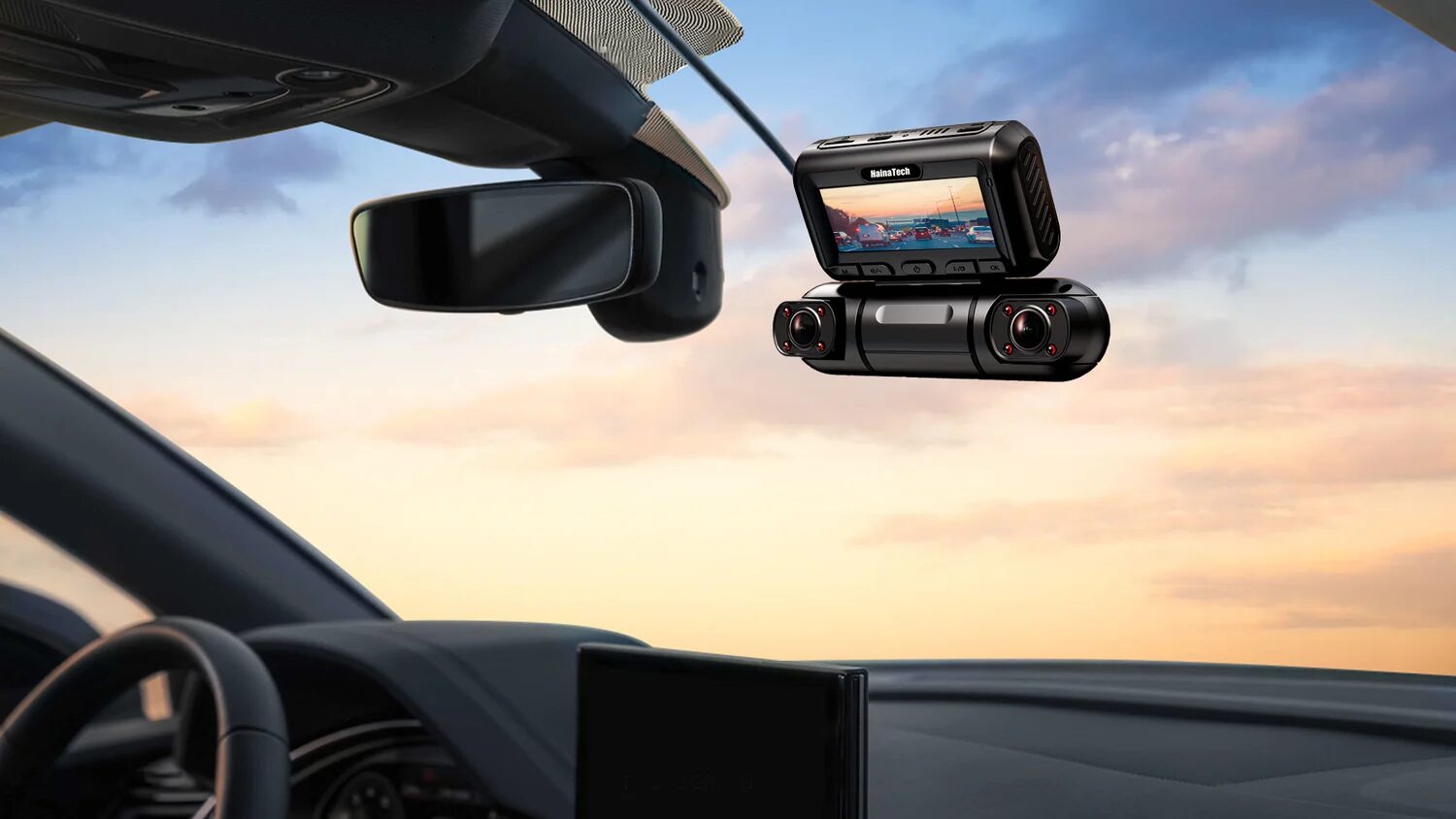When it comes to safeguarding your vehicle, understanding the differences between dash cams and traditional security cameras is essential. Dash cams, specifically designed for vehicles, capture footage while driving, whereas traditional security cameras, though sometimes adapted for vehicles, are generally intended for stationary locations. As of 2024, dash cams from brands like HainaTech are gaining traction for their reliability and affordability, with models like the HainaTech D88 offering advanced features that appeal to vehicle owners.
What Are Dash Cams and How Do They Work?
Dash cams, short for “dashboard cameras,” are cameras specifically built to record the view in front of, and sometimes behind, a vehicle. They activate once the vehicle is turned on, recording continuously to capture incidents as they happen. This functionality makes dash cams indispensable for many drivers, as they provide reliable footage for potential accident evidence, traffic violations, or unexpected events.
Key Features of Dash Cams
Several standout features make dash cams valuable additions to any vehicle:
- Continuous Loop Recording: Dash cams record in a loop, automatically overwriting older footage when the memory is full. This feature ensures that the camera is always ready to capture new footage.
- G-Sensor: The G-sensor detects sudden movements, such as collisions, and locks the current footage to prevent it from being overwritten. This feature is crucial in preserving evidence in the event of an accident.
- Parking Mode: Parking mode enables the dash cam to record when it detects movement or an impact while the vehicle is parked. This is useful for monitoring unattended vehicles.
- GPS Logging: GPS logging records the vehicle’s coordinates and speed, which can be helpful in reconstructing incidents.
- Dual or Multi-Camera Systems: Some dash cams, like HainaTech’s 4-channel model, provide front, rear, and side views for a more comprehensive recording perspective, enhancing the overall safety coverage for your vehicle.
These advanced features make dash cams an effective choice for capturing crucial footage that can aid in vehicle safety.
How Do Traditional Security Cameras Compare to Dash Cams in Vehicles?
Traditional security cameras are commonly used for home or business security, but some vehicle owners attempt to adapt them for use in their cars. However, these cameras have limitations when used in vehicles, as they are not designed to handle the specific needs of a mobile environment.
Key Considerations for Traditional Security Cameras in Vehicles
- Durability: Unlike dash cams, traditional security cameras are not built to withstand the vibrations and temperature variations commonly experienced in a vehicle. This lack of durability can limit their effectiveness and lifespan when installed in cars.
- Mounting Options: Security cameras lack specialized vehicle mounts, making installation challenging. Proper mounting is essential for recording stability, but traditional security cameras may not stay securely in place due to their design limitations.
- Recording Mechanism: Traditional security cameras do not include essential vehicle-specific features like loop recording, G-sensors, or parking mode without additional configurations, making them less effective for continuous vehicle monitoring.
Without these essential functionalities, traditional security cameras fall short in providing the security and reliability needed for vehicles, especially during driving.
Why Are Dash Cams Better for Vehicle Safety?
Dash cams are specifically engineered for use in vehicles, giving them a distinct advantage over traditional security cameras. Here’s how dash cams surpass conventional security cameras in various aspects:
- Usage Scenarios: Dash cams are made for in-car use, offering real-time recording of driving events and accident footage. They’re also beneficial for long journeys, allowing users to record the entire trip, which is not feasible with stationary security cameras.
- Installation and Maintenance: Dash cams are easy to install using clamps or suction cups on the windshield. Their power source usually connects to the car’s cigarette lighter or USB port. Maintenance is minimal, often limited to clearing storage and updating firmware. In contrast, traditional cameras may require complex wiring, power sources, and regular network maintenance.
In summary, dash cams offer ease of installation, minimal maintenance, and essential features for vehicle monitoring, making them a more practical choice for car owners.
Are GoPro Cameras a Good Alternative?
Some users consider using GoPro or other action cameras for vehicle recording. Although GoPros are high-quality, versatile cameras, they have limitations when used as dash cams.
Pros of Using a GoPro in Vehicles
- High-Quality Footage: GoPro cameras are known for their excellent video quality, often recording at high resolutions and frame rates.
- Multi-Functionality: GoPros are versatile and can be used for activities beyond car recording, like biking and underwater shooting.
- Compact Design: GoPros are compact and lightweight, making them easy to mount and dismount in various locations.
Cons of Using a GoPro in Vehicles
- Battery Life: GoPros typically have limited battery life, making them less reliable for continuous recording. Dash cams, by contrast, draw power directly from the vehicle.
- Lack of Specialized Features: GoPros do not have loop recording, G-sensors, or parking mode by default, making them less effective for vehicle monitoring.
- Manual Operation: GoPros often require manual operation, which is impractical for continuous vehicle surveillance.
While GoPros provide high-quality footage and versatility, they lack the specialized features needed for dedicated vehicle monitoring, making them less suitable for long-term use in cars.
Is the HainaTech D88 Dash Cam Worth Considering?
The HainaTech D88 dash cam, equipped with a 4-camera system, is among the most advanced dash cams available in 2024. It offers a 360-degree view around the vehicle, enhancing security for both the driver and passengers. This model’s advanced features, such as looping, G-sensor, and parking mode, provide comprehensive coverage and peace of mind, making it a top choice for those seeking reliable vehicle surveillance.
Conclusion: Which Camera Should You Choose?
In conclusion, dash cams are the best option for vehicle security, as they are specifically designed to capture on-the-road footage and provide essential features like loop recording, G-sensors, and parking mode. Although traditional security cameras and action cameras like GoPro offer unique advantages, they fall short in terms of vehicle-specific functionality and durability. For drivers looking for reliable, round-the-clock vehicle monitoring, a dash cam like the HainaTech D88 offers the most practical and effective solution.










